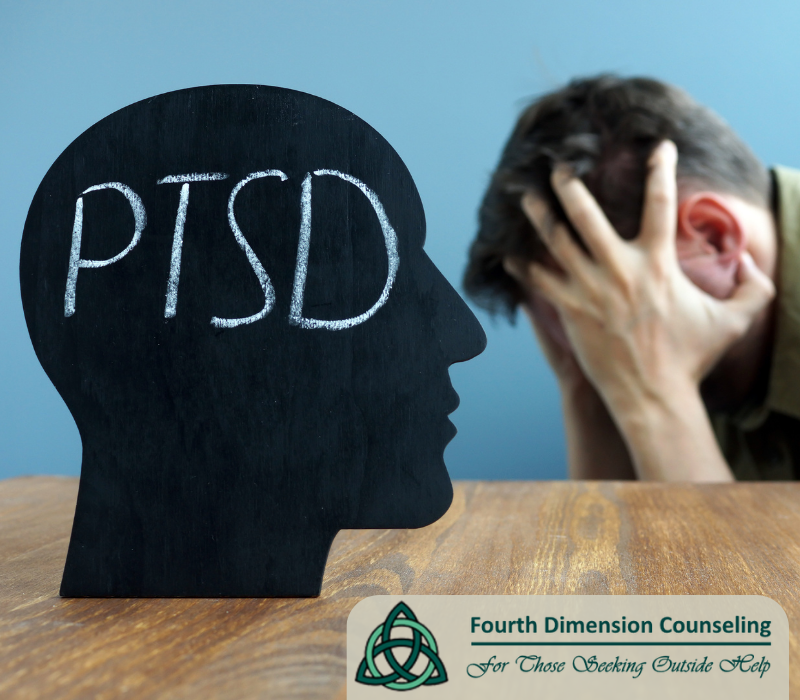
Post-traumatic stress disorder (PTSD) is a common psychological disorder. This illness is controversial and less understood because of its ability to show symptoms without a fraction of the triggering event. PTSD can start at any time leading to many questions on the triggers and causes of events. The pain is psychological, and the agony is absolute. The downside is that people can live with PTSD without knowing or recalling what triggered the issue. In short, you may have PTSD and not even know it. However, this article contains some signs to watch out for and what you need to know about PTSD.
What is PTSD?
PTSD is a threatening illness to our mental health and can result from some life-threatening events, like accidents, rape, loss of loved ones, serious illness, or other events. Other events that can lead to PTSD include seeing death at work, like 911 dispatchers or nurses.
Can you have PTSD without knowing?
Can you have PTSD and not even know it? Yes, because the mind can forget a traumatic event but unconsciously control it. PTSD can happen to people that suffer from other trauma without their knowledge.
Can PTSD come without trauma? Yes, it is possible for PTSD to manifest without the trauma, especially in people with mental cases like anxiety and depression. You can also observe it in avoidance and numbness. For example, a soldier may return from war with flashbacks of combat experiences and still looks brave. However, it is harder to observe these symptoms in people suffering from domestic violence and sexual assault.
However, the trauma starts consuming the subconscious part of the body for years without realizing it is PTSD. In addition, the brain may forget its exposure to traumatic events because of its inability to process or store such events as memories, unlike regular experiences. And when threatened or in fear, the feeling may trigger these memories or render it unable to remember them. Either way, these can be the shared nature of PTSD.
A typical example is people with negative thoughts about the world’s affairs can have PTSD without knowing due to the absence of trauma. Many people feel the world is unsafe, resulting in a lack of trust and involvement with others.
In essence, it is best to be observant about your mood, psychological experiences, and emotions to prevent PTSD from spreading. In addition, it is best to seek treatment to destigmatize the mental illness or events triggering PTSD.
Symptoms of PTSD
Feeling sadness, anger, fear, and emotions is healthy after facing a life-threatening situation. But some people do not recover with time; instead, the symptoms worsen, making it hard to continue. The symptoms of PTSD are different and broad. However, here are the common ones easily observed in patients:
- Nightmares and sleep disturbances
- Insomnia
- Intrusive thoughts, including flashbacks
- Emotions of shame or worthlessness
- Anxiety and depression
- Feelings of detachment from others
- Easy anger and startling responses
Having one or many of these symptoms can change your life goal. However, identifying the cause on time may save several future pains. In addition, it is the first step in clearing your mental health and recovery. Post-Traumatic Stress Disorder (PTSD) is a mental health condition that can develop after exposure to a traumatic event. There are several types of PTSD, including:
- Acute PTSD: This type of PTSD develops soon after a traumatic event and lasts for up to three months.
- Chronic PTSD: This type of PTSD persists for longer than three months and is diagnosed when symptoms persist for a year or more.
- Delayed-Onset PTSD: This type of PTSD develops more than six months after a traumatic event and may occur in people who initially didn’t have symptoms or didn’t recognize the symptoms as being related to the trauma.
- Complex PTSD: This type of PTSD is diagnosed in individuals who have experienced prolonged or repeated trauma, such as childhood abuse or neglect, domestic violence, or captivity. Complex PTSD can result in more severe and long-lasting symptoms than other types of PTSD.
It’s important to note that these types of PTSD are not mutually exclusive, and an individual may experience symptoms from multiple categories. Additionally, not everyone who experiences a traumatic event will develop PTSD, and the condition can be effectively treated with therapy and medication.
More Advice:
- Do I Need to See a Counselor for Love Addiction?
- Simple Ways to Reduce Stress
- Sex Victims Can Experience PTSD
- Emotions and How to Process Them
- Sex Addiction Counseling
- How Do I Know it’s Time to Get professional Counseling?
- How to Heal from Betrayal Trauma
- What is PTSD? – (Government Help)
- The Mental Health Effects of Sexual Abuse
- The 4 Types of Intimacy
- 5 Ways to Reduce Stress
- What is Co-Dependency?
- How Same-Sex Couples Counseling is Different
- How to Know it’s Time to Get Mental Help
- How to Find a Great Relationship Counselor
- What if I Can’t Get in to See a Counselor?
